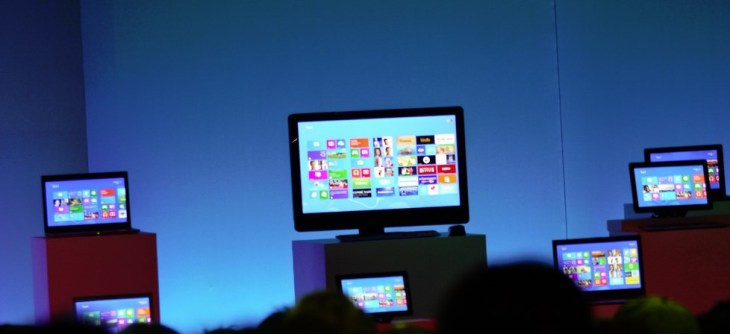In November, paid downloads of games on the Windows Store grew 34.12 percent, while free game downloads grew a more modest 13.41 percent. In the month, the Windows Store’s assortment of games saw 1,311,209 paid downloads and 16,744,484 free downloads.
Microsoft has released a partial dataset for its Windows Store app platform’s performance in the month of November. The company previously reported download rates concerning all app categories, for both free and paid applications. However, for the month of November, the company did not. This is annoying, and I’ve asked Microsoft why certain – seemingly random – app categories are now not displayed. In some cases you are provided the following response where the graph should appear: “Due to privacy issues, we are unable to show the reference curve.”
In general, categories that are not displayed relate to paid download rates in less popular categories, such as “Books and Reference.” In October, that category sold a mere 31,240 units. However, applications marked as “Social” that were free are also currently unreported by the company. In October, free social apps moved over 4.3 million units.
The games data is interesting, as paid game downloads in November (1.31 million) essentially matched all paid downloads on the Windows Store in October (1.35 million). In October, games made up 72.12 percent of all paid downloads. If that ratio persists, we could anticipate paid downloads for November to total 1.82 million on the Windows Store. However, I don’t think the paid download curve was as strong in other app categories in aggregate than it was in games for the month, after observing the partial dataset.
Still, 1.31 million paid game downloads, and almost 17 million free game downloads means that Microsoft did manage to grow its largest application category by a firm percentage in the month. That’s good.
What could be driving the growth in game downloads? In November, Microsoft announced that more than 1,000 games had been brought to the Windows 8.x platform by way of its support for the Unity engine. Those titles are presumably behind at least part of the gains. That’s actually decent for Microsoft as it means that its developer outreach efforts to drive new titles is connecting with consumers.
The good news, however, is incremental and should be kept in the following perspective: While Microsoft has managed to grow its download rates, its total downloads remain utterly minute compared to the iOS and Android platforms. So, better is good, but better isn’t itself that great.
If Microsoft gets back with an answer to why it is now obscuring certain data, I’ll update this post. Especially if they release the numbers we need for a more holistic analysis.
Top Image Credit: Flickr
